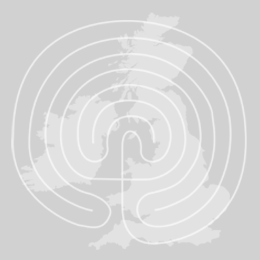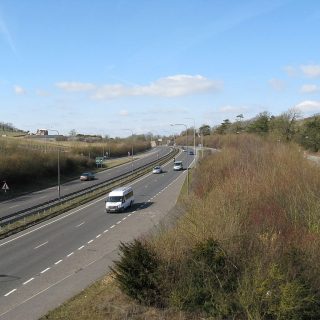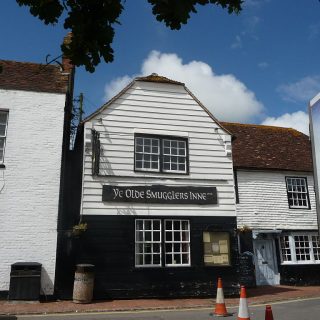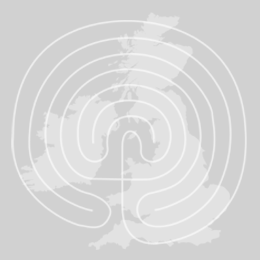Country and County: United Kingdom
Dating from the 17th century and formerly being the moated manor house of a large farm estate, the Grade II listed Deans Place has been a hotel since the start of the 20th century. The building has a reputation of being haunted by a female figure in a long blue dress or robe.
According to the BBC News Website ‘The UK’s most haunted road is listed as the A23 between London and Brighton, where ghostly figures include a small girl with no hands or feet, a figure in a white trench coat and a figure in cricketer’s clothing.’
At Pyecombe apparently a strange figure has been seen scampering across the road.
Partially dating from 1358, and originally known as The Market Cross Inn or Market Cross House, this public house changed its name in the 1920’s and now reflects its association with Stanton Collins, the leader of the Alfriston gang and their smuggling activities.
The White Way is a road running between Alfriston and Seaford, which according to local legend has a reputation for being haunted. According to tradition, one Midsummers Eve, a young man, who was the heir to the Chowne* estate was killed with his dog (possibly a white terrier) near Dean’s Place and quickly buried in a shallow grave.
According to ‘English Fairy and Other Folk Tales’ (1890) by Edwin Sidney Hartland,‘IN the vestry of Frensham Church, in Surrey, on the north side of the chancel, is an extraordinary great kettle or caldron, which the inhabitants say, by tradition, was brought
The following account of the story is extracted from ‘Legends Superstitions of the County of Durham’ by William Brockie (1886). ‘A similar incident* is said to have happened at the small market town of Sedgefield, about seventy years ago. A party out coursing hares raised one in a field near that place, towards which they were astonished to see that it ran direct.
Ceddesfield Hall is a Grade II listed building dating from the 18thcentury. Now a community centre, Ceddesfield Hall was originally built as a rectory for Reverend George Barrington. The previous rectory which this replaced burned down in 1793. It was this older building that was associated with the ‘Pickled Parson’.
The following account of the story is extracted from‘Legends Superstitions of the County of Durham’ by William Brockie (1886). ‘A case occurred in old Dundas Street, Monkwearmouth, twenty-four years ago, of a child believed to be witched, so that it was shrivelled up to anatomy.
The following story was published in ‘Legends Superstitions of the County of Durham’ by William Brockie (1886). ‘Mrs.
The following story concerning a fairy encounter was published in ‘English Fairy and Other Folk Tales’ (1890) by Edwin Sidney Hartland.






Recent Comments